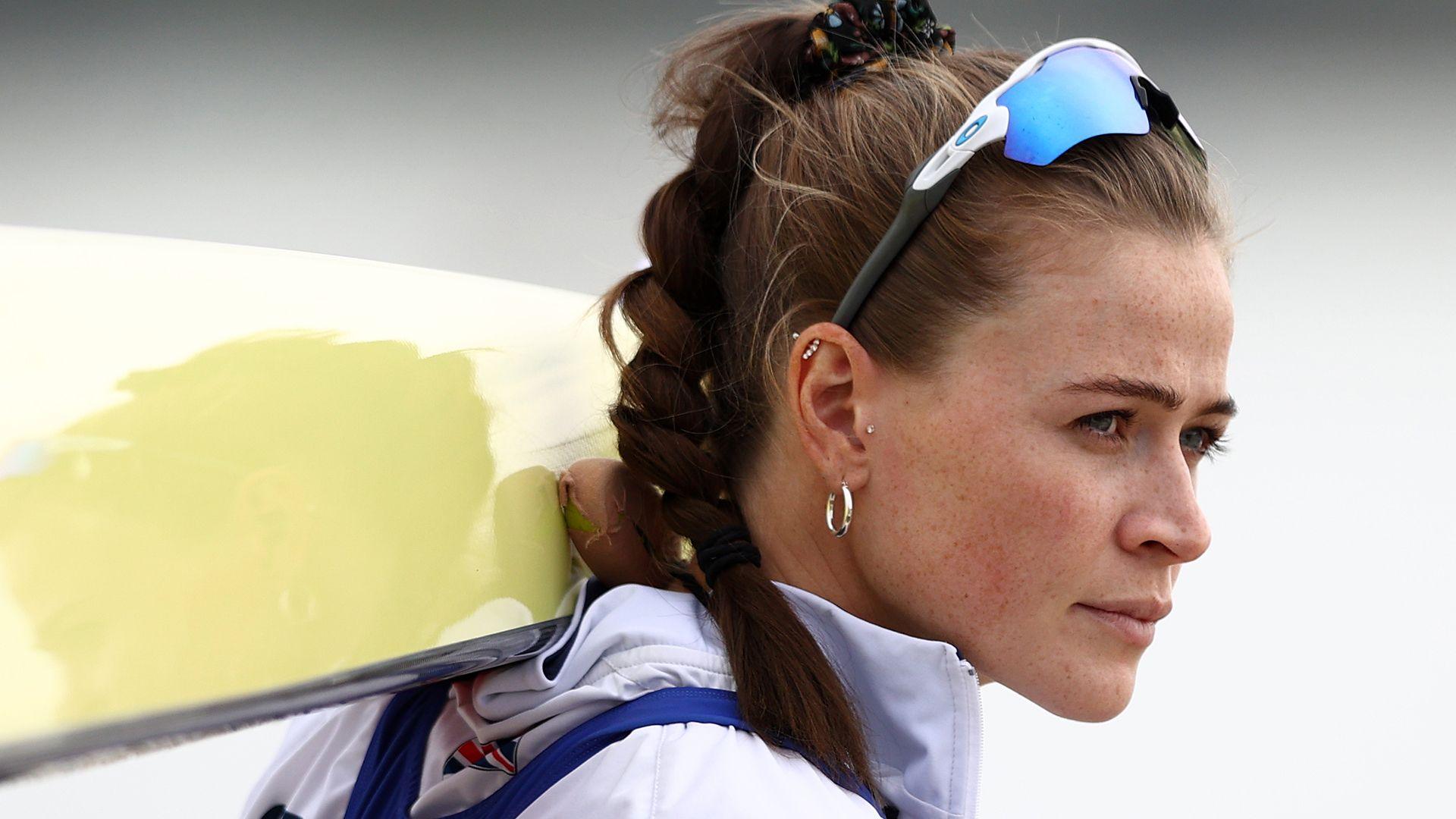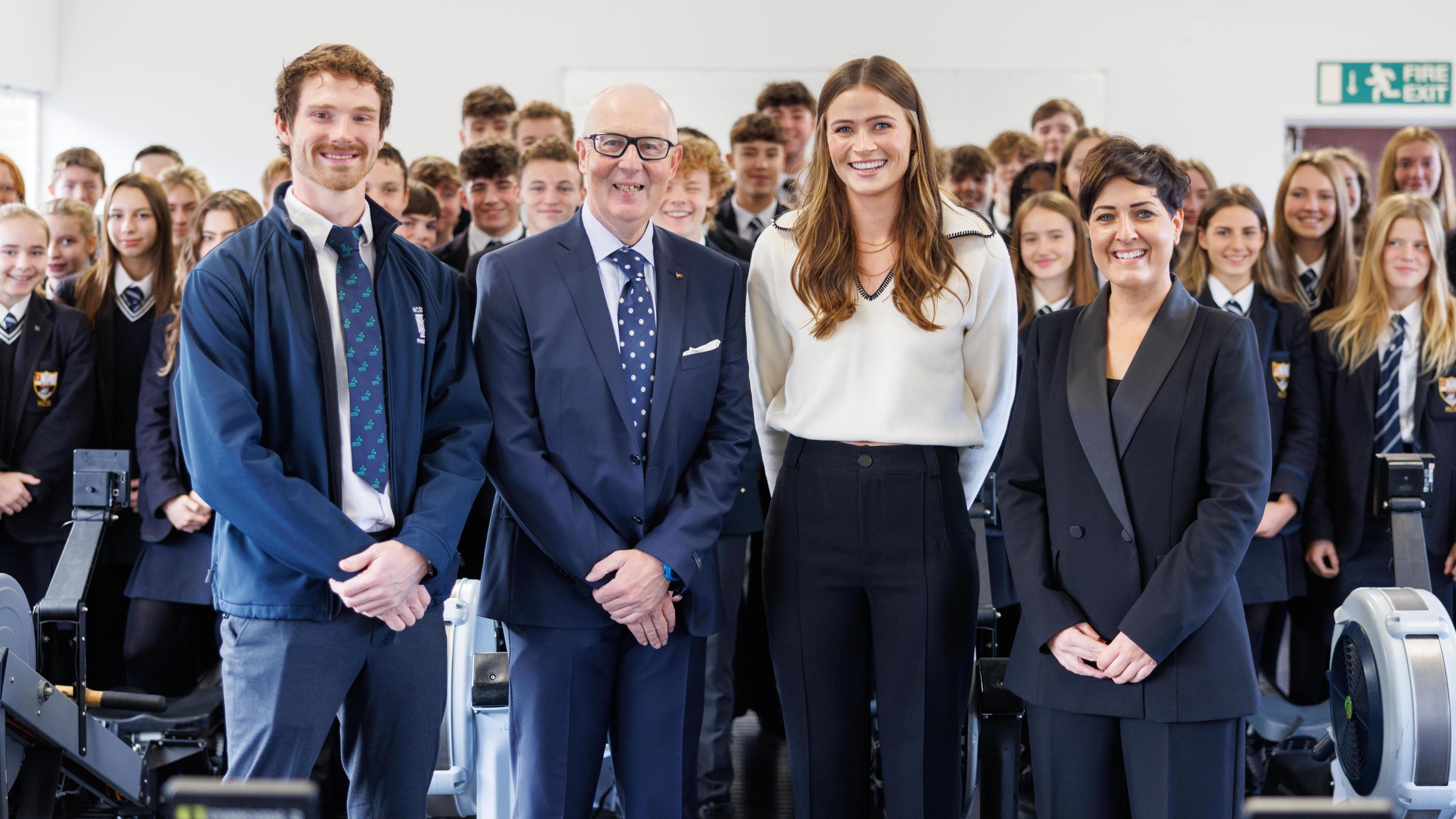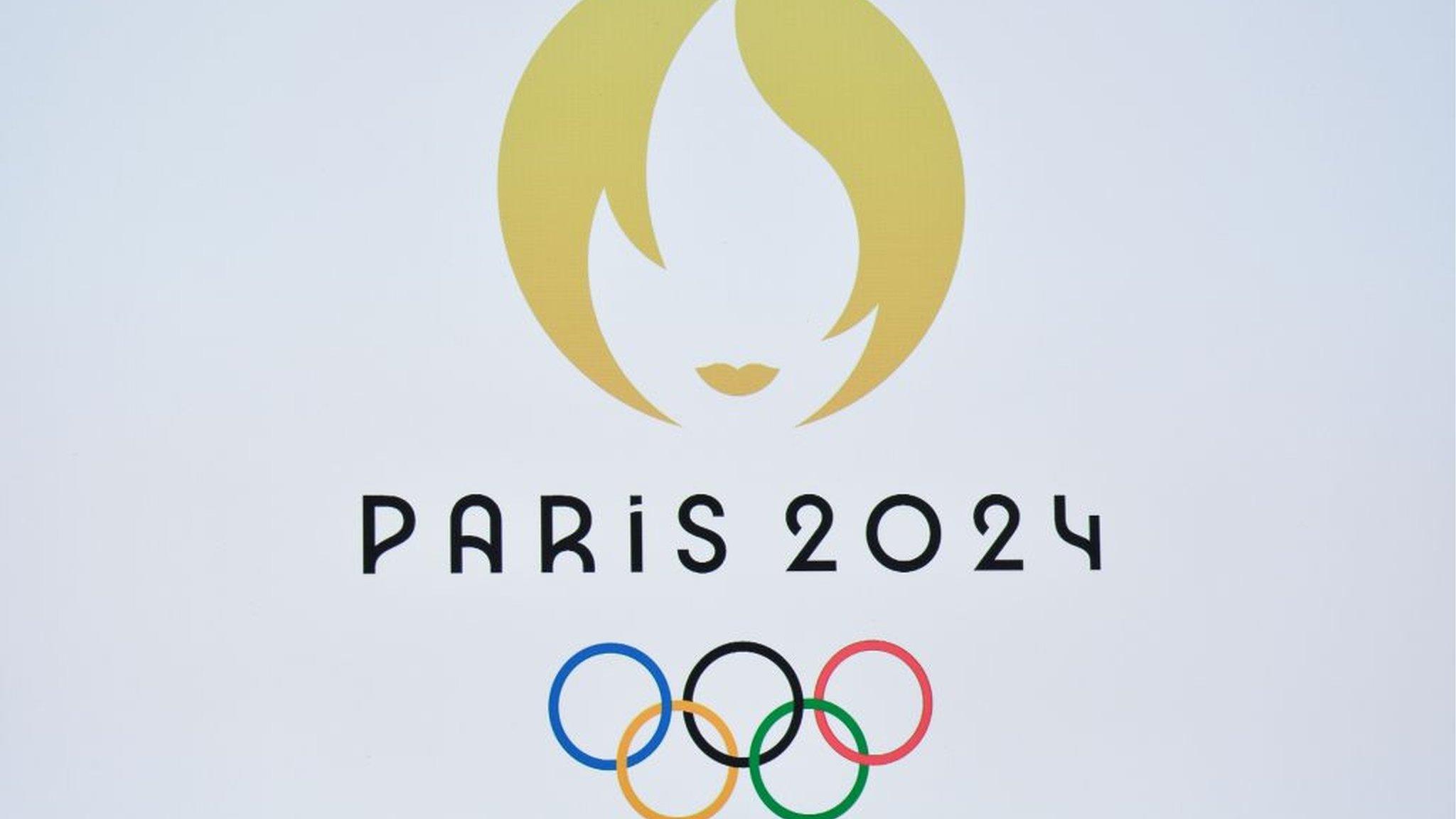Shorten's Olympic journey started in chemistry class

Shorten has become a two-time Olympian in Paris
- Published
"It was an easy conversation - 'Stuff chemistry, let's get you into a boat'."
A school science lab after a lesson about a blast furnace is not the most likely place for an Olympic journey to begin.
But that is exactly what happened to Rebecca Shorten who won silver at the Paris Games on Thursday along with her Team GB team-mates in the women's four final.
Her rise to the pinnacle of the sport may not have happened at all if it was not for a conversation with Enda Marron, her teacher at Methodist College, one spring morning in 2008.
"I remember one Monday teaching her in chemistry class and we were doing the blast furnace," Marron recalled.
"I said to her, 'let's forget about the chemistry and get you down to the river'. The rest is history."
Marron describes Shorten, then 14, as a "tall and confident girl" who "had an aura about her".
After heading down to Methody's boathouse on the banks of the River Lagan in south Belfast, Marron says Shorten, who is now 30, was "special and that was easy to spot from the word go".
"She was part of an excellent group who went on to do great things.
"In their second year of rowing they went to Ghent International in an eight and came second. They were only beaten by the actual French national team.
"After that they developed further and further."
Shorten and Team GB women's four pipped to Olympic gold
While the crew continued to progress, Shorten became the standout member.
Marron taught a technique at Methody called the MCB technical model, through which Shorten's natural ability shone.
"Rebecca really took to that," recalled Marron.
"She moved naturally and was able to understand the rowing stroke. It was only a matter of time that she was going to build on that and take it to the nth degree.
"For me, there are three strands and all three need to be top notch. There is commitment to the sport and all the demands of the sport.
"There is fitness, and at times it is extreme fitness. The third is technique and having a really sound understanding of good, technical rowing. Rebecca had all three of those in spades."
Marron also said the groundwork for professional rowing is laid in the grassroots level, and in Shorten's instance that was on the banks of the Lagan.
Even at schools' level the dedication required is extraordinary.
On top of their daily school routine at Methody, the rowers will start at 7am three times a week, followed by more sessions after the final bell and a double session on Saturdays.
It is rigorous stuff, and Marron admits it takes intense dedication at a young age.
"It is demanding, but they are highly organised, highly trained and able to do it.
"There are a lot of sacrifices, but a lot of that is compensated by the group of mates they have down here.
"The social life that the rowers have, they have their own social life. It's probably tamer than a normal teenager but they still enjoy it nonetheless."
That was a process that Shorten followed as she developed in the sport.
"I wouldn't say she stood out as a leader, but one thing about rowing is the squad has to learn to suffer, and suffer together," said Marron.
"Part of being able to suffer and put up with all the hardship and training, you know you have the backing of your mates. That really did help her grow and develop.
"We can set people off on the pathway to the very top."
What's happening and when at the Paris Olympics?
- Published10 August 2024
How to follow Paris 2024 Olympics across the BBC
- Published26 July 2024
'It's just Rebecca being herself'
After leaving Methody, Shorten stepped away from the sport but returned after rediscovering her love for rowing at university.
From there, she has not looked back.
She made her Olympic debut three years ago at the delayed Tokyo Games, agonisingly missing out on a medal by finishing fourth.
However, she has bounced back and has become a world and European champion in the coxless four.
While Shorten would always have been idolised by those who row in Methody, her stock has never been higher in the school after attending a prize day in 2023.
Marron says the sport has never been more popular in the school, which can be attributed to the 'Rebecca Shorten effect', and there is a "great buzz" as the Olympics draw closer.
Despite her status, she still returns to the school boathouse, often with Team GB kit for the next generation to pick up an oar.
"She walks in quite naturally, and she goes into the crew rooms, sometimes with a big bag of kit. It's so easy for her to relate to the youngsters.
"Boys and girls alike, they see her and they want to emulate her. It is great and inspiring.
"Rebecca is being herself. She is a good-natured and kind girl. She is very good with her little niece and she has talked to the youngsters in primary school.
"That's just her, she is being Rebecca."

Methody rowing coaches Miles Taylor and Enda Marron alongside Rebecca Shorten and school principal Mrs Lendrum
Going back to the chemistry classroom 16 years ago. Did Marron honestly believe she could be an Olympian before she had event put foot in a boat on the River Lagan?
"Yeah, I did. Genuinely," he said.
"I'm a lucky man, I have raced and rowed and trained with several Olympians. To say it's an aura, there's just something about them. As a sportsman who aspired to be good, I knew how hard I worked.
"To see someone who was able to beat me because they had natural ability, she has that and you could tell straight away."
Speaking before the Games, Marron took pride that the work of both him and Methody were on the start line in Paris.
"It takes a certain type of person to be a rower and she is just great.
"It's just desserts for the culmination of all the hours of hard training, sacrifice and dedication to the sport.
"At times it won't have been easy. It's the Olympics and everyone knows it is special and anything can happen.
"It gives me huge pride. Not so much for myself, but more in the school club knowing we can produce the best in the world.
"It's nice to know that there will be a little part of me on that start line in Paris, but it's all down to Rebecca."
Related topics
- Published17 April 2024
